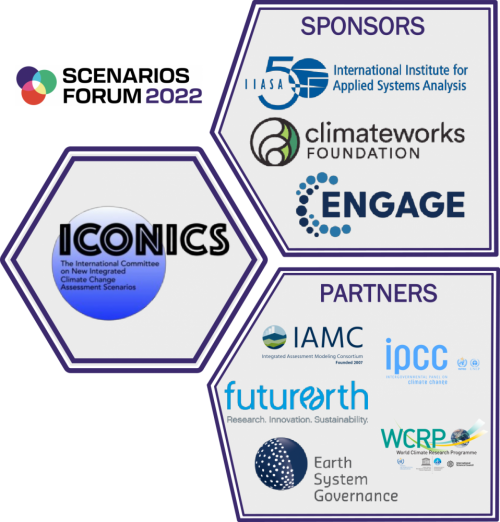
Forum on Scenarios for Climate and Societal Futures
The Scenarios Forum will be taking place as an in-person and partly online conference at the International Institute for Applied Systems Analysis (IIASA) and Laxenburg Conference Center in Laxenburg, Austria
By taking stock of recent progress, reflecting on the use of scenarios in environmental assessments and policy-making, and facilitating further scenario-related research, this meeting will inform the use of scenarios in the preparation for the next cycle of IPCC Assessment Reports (AR7) and help ensure a research base sufficient to inform future national and international assessments as well as policy initiatives, including the Sustainable Development Goals (SDGs).
About
An important, but not exclusive, focus of the meeting will be the ongoing process of developing, updating and using the so-called “scenarios framework” for fostering integrated climate change and sustainability research. As part of that framework, a new set of societal futures, the Shared Socioeconomic Pathways (SSPs), has been developed and used by integrated assessment models to produce global energy, land use, and emissions scenarios based on them. Climate models, mainly through CMIP6 ScenarioMIP, have simulated alternative climate outcomes driven by those emission – and derived concentration – scenarios, which add and in some cases update the CMIP5 simulations driven by the older Representative Concentration Pathways (RCPs).
Scientific Steering Committee Members
Bas van Ruijven, International Institute for Applied System Analysis (IIASA), Austria (Chair)
Henrik Carlsen, Stockholm Environment Institute (SEI), Sweden
Vaibhav Chaturvedi, Council on Energy, Environment and Water (CEEW), India
Kristie Ebi, University of Washington (UW), USA
Jan Fuglestvedt, Center for International Climate Research (CICERO), Norway
Mary Gasalla, University of Sao Paulo Oceanographic Institute (IOUSP), Brazil
Paula Harrison, UK Centre for Ecology & Hydrology (UKCEH), UK
Kasper Kok, Wageningen University (WUR), Netherlands
Elmar Kriegler, Potsdam Institute for Climate Impact Research (PIK), Germany
Julia Leininger, German Development Institute (DIE), Germany
Seth Monteith, ClimateWorks Foundation, USA
Brian O’Neill, Joint Global Change Research Institute (JGCRI), USA
Laura Pereira, University of the Witwatersrand, South Africa
Ramon Pichs, Center for World Economy Studies (CIEM), Cuba
Keywan Riahi, International Institute for Applied System Analysis (IIASA), Austria
Sonia Seneviratne, ETH Zürich (ETHZ), Switzerland
Jana Sillman, Center for International Climate Research (CICERO), Norway
Kiyoshi Takahashi, National Institute for Environmental Studies (NIES), Japan
Claudia Tebaldi, Joint Global Change Research Institute (JGCRI), USA
Detlef van Vuuren, Netherlands Environmental Agency (PBL), Netherlands
.By taking stock of recent progress, reflecting on the use of scenarios in environmental assessments and policy-making, and facilitating further scenario-related research, this meeting will inform the use of scenarios in the preparation for the next cycle of IPCC Assessment Reports (AR7) and help ensure a research base sufficient to inform future national and international assessments as well as policy initiatives, including the Sustainable Development Goals (SDGs).
About
An important, but not exclusive, focus of the meeting will be the ongoing process of developing, updating and using the so-called “scenarios framework” for fostering integrated climate change and sustainability research. As part of that framework, a new set of societal futures, the Shared Socioeconomic Pathways (SSPs), has been developed and used by integrated assessment models to produce global energy, land use, and emissions scenarios based on them. Climate models, mainly through CMIP6 ScenarioMIP, have simulated alternative climate outcomes driven by those emission – and derived concentration – scenarios, which add and in some cases update the CMIP5 simulations driven by the older Representative Concentration Pathways (RCPs).










Add new comment